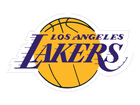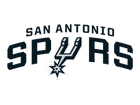The Supreme Court on Monday declined to hear arguments in a challenge brought by the NBA, seeking the reversal of a Second Circuit decision finding a concrete injury when a consumer’s information is disclosed to another business. The case centers on a lawsuit brought by Michael Salazar, who sued the NBA for tracking his activity on NBA.com and through its free newsletter, data it then shared with Meta to serve him targeted ads.
He is normally the most jovial of characters. He laughs often, and sometimes he’s the only one who knows why he is laughing. He wears colorful beaded necklaces and bracelets, and they rattle as he enthusiastically tells stories of dinners with Michael Jordan, golfing with Julius Erving, the latest book Kareem Abdul-Jabbar has sent him, or his most recent hang with one of his favorite people, Shaquille O’Neal. But he turns serious and emotional when the subject turns to his two fights — the Supreme Court case and his push today to have that ruling recognized. “My clock is ticking, and I don’t want to go out like this,” Haywood said. “The one thing I want, and I’ve been asking now for the last four years, is to have my name on the ruling: it’s the Spencer Haywood Rule. There are 480 players in the NBA, and 468 of them don’t know who the f— I am. I want the players to know there was once somebody who cared enough to put their life and career on the line. “But, they don’t know.”
The letters the Congressmen sent challenge the leagues to defend the antitrust protection they are afforded by the Sports Broadcasting Act, or SBA, passed by Congress in 1961 — something different from an oft-referenced exemption unique to baseball, which stems from a 1922 Supreme Court decision.
The NBA last week submitted a brief to the U.S. Supreme Court urging the justices to review whether the Video Privacy Protection Act (VPPA) —a 1980s era law known as the “Bork Bill” because it was a response to the leaking of one-time Supreme Court nominee Robert Bork’s video rental history— applies to a man who signed up for a free online newsletter published by the NBA and who watched free videos on NBA.com while logged into his Facebook account.
Michael Salazar sued the NBA in 2022 because his viewing history was transmitted to Meta via a Facebook cookie and his Internet browser. A district court dismissed the complaint, but the U.S. Court of Appeals for the Second Circuit reinstated it, leading the NBA to petition the Supreme Court for review.
Advertisement
The NBA asked New York’s Supreme Court late Friday to dismiss Warner Bros. Discovery’s matching rights lawsuit against the league, claiming, for instance, that WBD rewrote lengthy portions of Amazon’s $1.93B annual bid and in essence submitted a counteroffer rather than a match. Also citing precedence from multiple cases -- including an NBA matching rights entanglement from 1973 -- the NBA told the court its motion is “so clearcut" that Judge Joel M. Cohen could conceivably dismiss the complaint in the near term based on attached documents and filings alone. Under court scheduling terms, WBD is required to respond to Friday’s motion on or before Sept. 20, and the NBA would then need to “reply in further support of their motion to dismiss" on or before Oct. 2. But, in its 28-page memorandum, the league made several points for dismissal, the most glaring being that WBD cannot match a streaming-only bid under its linear matching rights clause from 2014. Instead, the league wrote that WBD ignored the intricacies of Amazon’s Internet-only package and tried matching it with both its streaming entity Max and linear TNT.
The National Basketball Association (NBA) is teaming up with the American Gaming Association (AGA) to improve its responsible gaming messaging across the league. The AGA is the leading lobbying organization in DC working on behalf of the legal US gaming industry. Launched in 2019 after the US Supreme Court said states should determine their own laws on sports betting, the AGA’s Have A Game Plan program seeks to educate sports fans on gambling. The initiative provides tools and resources for bettors to play safely.
There's a primer on the hall's website, but it doesn't provide identities of the voters themselves, a sharp contrast from the respective halls for professional hockey, football and baseball. So who are the voters? Who picks them? And why is the whole procedure shrouded in mystery? These are among Cousy's queries, and when details -- provided to ESPN by those who have voted (and who largely wanted to remain anonymous) along with top executives at the hall -- are shared with Cousy, he pauses, then offers a long "hmmmmmm." "It sounds byzantine," Cousy says. "It probably wouldn't pass a Supreme Court muster."
Spencer Haywood has transformed the NBA in more ways than one. Now, he's looking to be a game-changer right here in Las Vegas. "Before I came along, the NBA didn't allow players to leave high school, college or anything you had to stay for four years after your high school class or graduated," Haywood said. "So I sued the NBA for the rights to play." Five decades later, the impact of Haywood is clear every time you look on an NBA court. "In that Supreme Court ruling, I won seven to two," Haywood said.
“From episode 5 (when Haywood was introduced) and on, I was sick. I was crying. I couldn’t control my emotions,” Haywood said. “But it turned out to be a blessing. People were like, ‘I know you were crazy on that Lakers show, but let me look at your true story.’” And that’s what happened. Folks — including myriad NBA players — watched “Winning Time” and wanted to know just who this Spencer Haywood guy was. Here’s what they found out. He was a five-time All-Star who made two All-NBA first teams and two All-NBA second teams. He was the Rookie of the Year and MVP in his sole season in the ABA. Most significantly, though, he won a Supreme Court case that prohibited the NBA from mandating that players be at least four years removed from graduating high school before they could play in the league.
Advertisement

Although the letter seemed to suggest some legal action might take place if those demands aren’t met, West apparently confirmed that to be his intention during his discussion with Dwyre. “The series made us all [the Lakers] look like cartoon characters,” West told Dwyre. “They belittled something good. If I have to, I will take this all the way to the Supreme Court.”
Early in his ascent, the bossman at the newly named Nike had found the athlete born to push his products. After years of navigating the racing and jogging categories, Knight was ready to take over all athletic endeavors by branding the best and brashest with Swoosh-marked sneakers. “There was a lot of media around me, so Phil wanted me to rep the shoe,” Haywood said. “I didn’t have any impression of Nike at that time because I had just gotten out of the Supreme Court case and was excited to play basketball.”

"It's ironic, but as much as the community of color has been oppressed and denigrated, those are the people who try to save this damn country from itself," Popovich said. "It’s just ironic to me. Every time we take steps forward, you get the backlash. The fact that the voting rights issue is in the situation it’s in is just mind-boggling to me in one sense, because we’ve already gone through this back in the '60s, and we know what the Supreme Court did earlier in gutting it. "But it's like we don’t get it. It’s like, maybe there wouldn’t be a democracy if it wasn’t for Black people."
First, let’s address the elephant in the room. Why was Michael Jordan ringing the bell on IPO day? Well, Michael Jordan, Dallas Mavericks owner Mark Cuban, and Monumental Sports CEO Ted Leonsis — the owner of the NBA’s Wizards, the NHL’s Capitals, the WNBA’s Washington Mystics, and more — invested $44 million in the Swiss company in 2015. Keep in mind; sports betting didn’t even get legalized in the United States until the Supreme Court ruled PASPA unconstitutional in 2018, paving the way for states to self-regulate retail and online sports betting. But the early bet has paid off tremendously. Sportradar covered about 325,000 live events at the time of the investment but now covers about 750,000 events annually, providing data analytics and other technology services to 900 sports betting operators and 350 media companies.